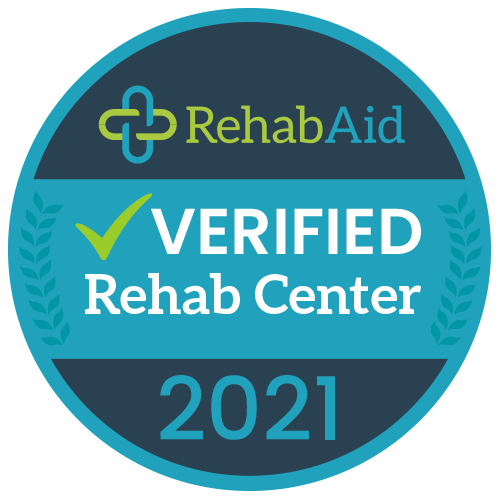|
The Four Modules of DBT
DBT, or dialectical-behavioral therapy, is an evidenced-based treatment originally created by Marsha Linehan, Ph.D., for use in the treatment of patients diagnosed with borderline personality disorder (BPD). Those with BPD often experience intense mood swings, have challenging relationships, and engage in self-injurious behaviors. Thus, the core modules of DBT were developed to center on skills to increase awareness to emotional experiences, cope with overwhelming emotions, tolerate unpleasant feelings and situations, and communicate with others in an effective way. Although DBT was originally used for treating BPD, these skills are truly applicable to anyone, as all humans, at some point, feel uncomfortable feelings, encounter challenging situations, and struggle in communicating with others. Mindfulness The first module of DBT, mindfulness, centers on increasing awareness to the present moment. Mindfulness skills aim to increase the ability to be aware of what is going on in the present moment. This means awareness of not only what is going on in the moment externally (what is happening around you), but also what is going on in the moment internally (what is happening inside of you). Through being mindful of internal experiences, like thoughts, feelings, and physical sensations, we can gain awareness as to how these things effect our mood, behavior, and interactions. Mindfulness skills are the foundation for the rest of the DBT modules. Skills taught in the core mindfulness module include:
Distress Tolerance The second DBT module, distress tolerance, focuses on skills to increase resilience and manage emotions during stressful times. So many of us (consciously or subconsciously) seek to “numb out” during difficult times, turning to substances or other unhealthy behaviors. While these ways of “coping” may feel good in the moment, they are ultimately unhelpful. Distress tolerance skills, sometimes referred to as “crisis survival skills” aren’t necessarily about taking away the feelings or the stressful situation, but more about increasing the capacity to navigate these experiences in an effective way. Skills taught in the distress tolerance module include:
Emotion Regulation The third module of DBT, emotion regulation, teaches skills to promote increased understanding of the function of emotions, as well as the action urges that often accompany these emotions. This module also provides ways to decrease the intensity of strong emotions, and approaches to “ride” an emotional wave, without having to take action. Skills taught in the emotion regulation module include:
Interpersonal Effectiveness The final DBT module, interpersonal effectiveness incorporates skills that look similar to those taught in some assertiveness or interpersonal problem-solving trainings. These skills focus on identifying needs in relationships, learning when (and how) to say “no”, and dealing with interpersonal conflict. Each skill taught in this module shares a goal of maintaining respect, for oneself and for others. The skills taught in the interpersonal effectiveness module include:
Until the late 20th century, Western approaches to mental health treatment centered primarily on the use of psychiatric drugs or talk therapy. Yet in recent years, this has started to shift. We are now seeing a wider range of modalities and treatments, many being pulled from Eastern philosophy. While contemporary to mental health treatment in the West, Eastern philosophical schools of thought, such as Taoism, have existed for thousands of years. Eastern philosophy centers on holism (restoring balance of the body, mind and spirit), self-regulation, and mindfulness. At Zen Institute, we integrate traditions from both East and West for an effective and balanced approach to mental health treatment.
Eastern Based Healing at Zen Institute Holism A holistic approach to mental health and wellness is simply a form of healing that considers the whole person. Through addressing all parts of a person (physical, emotional, psychological, social, and spiritual) and the interconnectedness of those parts in the treatment process, proper balance can be restored in one’s life. Mindfulness The practice of mindfulness is rooted in Eastern tradition and Buddhist psychology. Mindfulness practices are akin to mental training and teach us to focus on the here and now, rather than lamenting the past or worrying about the future. Through mindfulness, we grow better at differentiating between what is in our control versus out of our control. Meditation Meditation is a practice intended to encourage a heightened state of awareness and focused attention. Over time, meditation can help quiet the mind, better manage symptoms of depression or anxiety, increase self-awareness, and improve immunity. Western Psychotherapy at Zen Institute Dialectical Behavioral Therapy Dialectical behavioral therapy, or DBT, was originally created for individuals with borderline personality disorder (BPD) but has since been applied to the treatment of a wide range of mental health struggles. The main goals of DBT are to develop healthy ways to cope with stress, regulate emotions, and improve relationships with others. Sensorimotor Psychotherapy Sensorimotor psychotherapy (SP) is a body-centered approach used to treat trauma and PTSD. Using both sensorimotor and cognitive processing, SP targets the somatic (bodily) symptoms of unresolved trauma, which in turn, leads to emotional healing and growth. Eye Movement Desensitization and Reprocessing Eye movement desensitization and reprocessing (EMDR) is a psychotherapy designed to decrease the distress associated with traumatic memories. EMDR uses bilateral stimulation, such as eye movement, to help process the unresolved memories. Although originally designed for PTSD, it can be used to address other adverse experiences or negative beliefs. With a blend of Eastern and Western treatment options, our team at Zen Institute has created a program that provides our clients the best possible chance of long-term mental health recovery and overall wellbeing. Want to learn more? Contact us to get quick answers to your questions or schedule a free consultation and tour. We all experience trauma at some point in our lives. Trauma disrupts the normal functioning of the nervous system and a dysregulated nervous system does not always return to baseline when the traumatic event is over. The trauma is then essentially stored in the body and can be re-experienced, causing a range of somatic symptoms (bodily sensations) Sensorimotor Psychotherapy (SP) developed as an approach to treat these unprocessed traumas and the resulting symptoms.
SP is a body-inclusive approach. It promotes the notion that underneath the conscious verbal story of the trauma lies a somatic narrative full of information that can lead to healing. Sensorimotor psychotherapy harnesses the innate wisdom of the body by exploring and identifying the somatic impact of past traumatic experiences, as well as learning to track bodily and emotional responses when triggered. There are 6 guiding principles to sensorimotor psychotherapy – organicity, non-violence, unity, mind-body-spirit holism, mindfulness, and relational alchemy. Organicity Organicity refers to the internal wisdom we, as living beings, all have. This core principle of SP means the therapist is not “healing” their client. Instead, the client is encouraged to recognize the capacity they have within them to grow, change, and heal themselves. Nonetheless, SP is a collaborative process - the therapist offers support and guidance to promotes the client’s self-exploration and personal empowerment. Non-Violence The work done in sensorimotor psychotherapy is not forceful. It is centered in non-violence, which means criticizing or pathologizing are never a part of the process. Symptoms are not viewed as negative, but rather signals of our internal systems. SP encompasses a spirit of non-judgment, compassion, and acceptance as a way to create a safe space conducive to change. Unity As humans, we are all part of a living organic system of interdependent parts. Unity recognizes that while we are all interconnected beings, we are also composed of different parts – influenced by other individuals, communities, and larger systems. Sensorimotor psychotherapy promotes exploration of the individual self, through improving self-perception, recognition, and self-advocation. Achieving a more unified and holistic sense of self allows for increased personal welfare, healthier relationships, and an overall sense of wellbeing. Mind-Body-Spirit Holism SP works with emotions, thoughts, and the body together, based on the premise that they are all connected. Addressing the mind, body, and spirit holistically, rather than in isolation, can shed light on the impact each one of these parts has on the others (i.e. – how thoughts affect emotions, which then affect physical sensations and behavior). Through mind-body-spirit holism, growth and healing are integrated in a more profound and cohesive way. Mindfulness/Presence Mindfulness is at the heart of SP. Mindfulness refers to the practice of turning one’s awareness to the present moment. Mindfulness is used to help a client pay attention to certain aspects of their experience with compassion and curiosity. This promotes a greater sense of awareness of patterns, responses, and habits. Additionally, SP clinicians use mindfulness to attend to the client’s body language and breathing patterns, as a way to gain insight into how the body responds to specific thoughts, emotions, and memories. SP also uses relational mindfulness to help clients to build mirror neurons and provides a sense of safety as they explore their authentic self. Relational Alchemy Sensorimotor psychotherapy recognizes the impact relationships (especially early childhood relationships) have on our beliefs about ourselves, others, and the world in general. Although these beliefs are often developed subconsciously, they influence our behavior and responses. Rather than recognizing this intellectually, SP supports understanding this on a bodily, felt-sense level. Through shifting the felt sense, a client can begin to transform their connections to self and others. Through sensorimotor psychotherapy, clients can discover and change unhelpful patterns (both physical and emotional) that impede functioning. SP helps clients cultivate their strengths while providing enough challenge to inspire growth and long-lasting change. *Zen Institute’s clinical director, Pallavi Gupta, MA, LPC, is a certified advanced practitioner of Sensorimotor Psychotherapy. She was personally trained by Dr. Pat Ogden, founder of Sensorimotor Psychotherapy. Pallavi has been in the mental health field for over 20 years and specializes in treating trauma with a combination of Sensorimotor Psychotherapy and EMDR. There is no doubt COVID-19 has significantly impacted all of our lives. It has brought challenges we never thought we would face and has forced us to find new ways to do our jobs, sustain our relationships, and function in our day-to-day lives. There is no doubt this pandemic has taken an emotional toll on all of us, particularly those living with anxiety. And while we are still in the midst of uncertain times, there are ways we can better manage our anxiety and restore a sense of well-being.
Keep a Routine Establishing a consistent routine that involves regular meals, exercise, and sleep is critical to regulating our moods and managing anxiety. But the pandemic interrupted many of our previously established routines. And if you have yet to create new one, now is the time. Having a new routine helps us remember that life is continuing on. Daily routines can also support us in feeling more grounded, purposeful, and resilient. Stay Connected Maintaining healthy relationships with loved ones and friends is always essential to mental health and well-being. Unfortunately, the pandemic has made it difficult to connect with others in some ways in which we were previously accustomed. This has left many of us feeling lonely or isolated. But we can still pick up the phone, send a text, or get on a video call. The more we can connect with others, whether to share worries and fears, or just have a good laugh, can make a huge difference. Focus on the Here and Now The virus has brought a lot of uncertainty, and uncertainty triggers anxiety. It is easy to get caught in a cycle of anxious thoughts – all those “what-ifs” about what the future might bring. Unfortunately, this just compounds the anxiety. Concentrating on the present moment by focusing on what is happening right now, rather what might happen in the future is essential to managing anxiety. Of course, this is easier said than done. But our brains are trainable, and the more we can notice when our thoughts wander from the present moment and bring them back to the present moment, the easier it becomes. Some ways to come back to the present moment include:
Travel Virtually COVID-19 has made our worlds smaller. Seeing friends, going to our favorite restaurants, or visiting family are all things that look very different these days. Working from home, which perhaps felt novel in the beginning, just feels mundane now. And any sort of travel, whether for business or pleasure, has certainly come to a halt. The monotony of the days can leave us feeling restless, anxious, and unmotivated. Thus, it is vital to find ways to “shake things up”. Instead of scrolling endlessly through social media feeds or mindlessly playing that phone game for hours, try using technology in a different way - by traveling virtually. After the pandemic hit, countless museums, national parks, and zoos created virtual tours for people to take from the safety of their homes. These virtual tours can help break up the monotony of the day and keep our minds stimulated, even if we are stuck on the couch. Check out this list of virtual tours, or do a quick internet search to find what might interest you. Use Gratitude During challenging times, it can be tough to notice the good stuff. However, finding ways to be grateful can really boost our ability to cope. Practicing gratitude increases the “feel-good” hormones in the brain – serotonin and dopamine, and has been shown to improve immunity and an overall sense of wellbeing. There are many ways to bring more gratitude into our lives:
Practice News Distancing For months, every newspaper, social media platform, and tv station has been flooded with coverage about the pandemic. While staying up-to-date and informed is important, there is such a thing as too much information. Being inundated with any information, especially that which is stressful in nature, can be overwhelming. So, just as we are practicing social distancing, we also need to be practicing “news distancing”. Try designating certain times throughout the day to “unplug” from news and social media. Or try “unplugging” altogether for a day or two (you could designate a trusted friend or loved one to share news updates as necessary). Seek Support If you’re feeling overwhelmed by your anxiety, remember, it is OK to ask for help. Mental health support is more accessible than ever, with many therapists offering telehealth sessions remotely, either via phone or videoconference. Today I would like to talk about how to manifest what you want by practicing these 3 steps, I call it: doing by not doing.
My name is Wen Chi Chien. I am a Psychotherapist, a life coach and the founder of Zen Institute. I’m with Gordon Ingwersen. He is an amazing mentor to me. I would like get some insight from him about today ‘s topic “doing by not doing. So,what does it mean, doing by not doing? My name is Wen Chi Chien. I am a licensed psychotherapist and a life coach. Today, I would like to help you to cope with the feelings around the coronavirus crisis. It is easy to live in fear and many people are living in fear because of coronavirus, but you don't have to. The majority of the people walking on the earth are blind followers, and you are my hero, you are my gladiator! And under any circumstances, you have two choices. Choice A: Be afraid. Choice B: Be powerful. Which one would you choose? It's a no-brainer. Choice B: Be Powerful. So how do you deal with the coronavirus and feel powerful about it? The reason people are anxious right now because they're not being present. We go into the future mode, what if? What if? What if? We'll worry, worry, worry. Guess what? Worry is that you're paying the debt you don't owe.
So the tool for you right here, right now is what I call three boxes. All you need to do is to imagine in front of you, there are three boxes. The box on the left represents the past. The box on the right represents the future. The box in the middle represents the present. Okay? If you want to experience shame and guilt, which box do you focus on? The past. If you want to experience worry and fear, which box do you focus on? The future. If you want to experience love, peace, and joy, which box do you focus on? Right here, right now. The present. It’s just that simple. The past is done. You can't go back to change it, no matter how remorseful you are. And the future is not here. How can you control something that does not exist? The definition of Zen is there is no reality outside of here and now. This is all we have, right here, right now. So how do you use these three boxes to keep yourself in the present moment? Two questions for you to ask. Right now, this moment, which box am I in? If I feel shame and guilt more likely I'm stuck in the past box. If I feel worried and fearful, it’s more likely I got stuck in the future box. So the first question is, which box am I in? And if you find out you're in the future box, what if, what if, what if, then ask yourself a second question: How long do I want to stay there? If you continue to stay in the future box, you will continue to feel anxious and fearful and eventually you will be paralyzed by this uncertainty. So bring yourself back to the present moment by identifying everything in your surroundings. The wall, the carpet, the chair, the table, the books, my shoes, my dog, my cat. Okay, so which box are you in right now? The present. Are you okay with that? This moment, just practice one nanosecond at a time. So if use this nanosecond right here, right now, to get stuck in the past or the future box, your life just slips right in front of you. But if you use this nanosecond to stay right here, right now, chances are the next nanosecond, you will stay right here, right now, and then you're good to go. That's how you create the life that you want. Now, someone asks, "How do I deal with the coronavirus? It's happening right here, right now." Okay, so there are many things you can do that are under your control. One of them is social distancing. Many people are practicing that, which is wonderful. So keep all of us safe. On the other hand, say you're in a safe environment, you can do things that are self-soothing, listen to the music, read a book, put fluffy socks on and hold your stuffed animals and do those things you didn't have time to do it in the past, such as learning skills online that you always wanted to learn, like how to play guitar. And now you can watch YouTube and play guitar, and wherever you are, make your environment very comfortable for you. And that is 100% under your control and you're always being present. And remember, no storm lasts forever. So the coronavirus is not a permanent disease. So the most important thing is for you to recognize that you are not here to suffer. You're here to celebrate, celebrate the fact that you are absolutely powerful beyond measure! 4 weeks vs. Months and Years of mental health treatment The greatest tragedy in humankind is not being abandoned by your loved ones, but that you abandoned yourself!
When you doubt yourself and put other people’s needs before yours, and when you engage in self-destructive behavior, you have abandoned yourself! This is the reason why I created my signature therapy, “Inner Twin.” My job is to remind you of the truth. The truth is that you are absolutely powerful beyond measure, and whatever you want in your life, you can make it happen! No one can take that power away from you! Unfortunately, in the current mental health system, you may spend tons of money, and years in therapy and not get the results you desire! Indeed, it is time for a big revolution in the mental health world! At Zen Institute, we can help you achieve your desired outcome in as little as four weeks! The variety of clients who have completed our program includes people who had never received psychotherapy treatment and people who had been in treatment for years. The feedback we have received since day one, which was 12 years ago has always been the same: “I can’t believe it works!” “It needs to be made available to everyone in this world!” We utilize the shortest amount of treatment time (4 weeks) to produce the most amazing desired outcome! Since we opened up Zen Institute, the feedback from our alumni is that 100% of them would recommend their loved ones to come for treatment! Here is what makes our treatment different from others: #1. Inner twin therapy: It is indeed the missing link in traditional therapy – The powerful foundation of self-healing work! Once you connect to your authentic self, your higher self, and tap into your inner power, you will be able to build this solid self-confidence, that will always stay with you no matter what is happening around you! #2. Cognitive behavior therapy (CBT): Learn about the combination of Eastern and Western philosophy, change your thoughts; change your life! #3. Dialectical Behavior Therapy: (DBT): it is focused on Mindfulness, distress tolerance, emotional regulation, and interpersonal effectiveness. #4. Eye Movement Desensitization and Reprocessing: (EMDR) This is a very powerful treatment modality that can help you let go of unresolved issues and past traumas! This program is uniquely tailored for your individual needs, which cannot be achieved in treatment that is mainly geared towards group work. Over the years, we have been asked to open up Zen Institute branches in New York City and San Francisco. As we continue to serve the world, our goal is to offer this program to everyone who is in pain and suffering! Indeed, you are not here to compete; you are here to connect! You are not here to suffer; you are here to celebrate! Celebrate the fact that you are absolutely powerful beyond measure! www.myzeninstitute.com 520-222-9361 After suffering from severe anxiety, depression, trauma, and addiction for 30 years of my life, just a few years ago, I figured out the secret of happiness!
I’ve read thousands of books, and I’ve done 17 years of professional work as a psychotherapist. This is the moment I’ve been waiting for… to share the secret of happiness with you! Are you ready to hear about it? Everything in this world falls into two categories: Things under my control and things not under my control. Do you agree? There are five things that are outside of our control! What are they? Other people’s thoughts, other people’s feelings, other people’s behaviors, the past, and the future. For example, maybe someone puts you down, someone gets upset with you, someone does something that hurts you, and you unconsciously get stuck in the things that happened in the past or the things you imagine that might happen in the future. Now, look back at the last 12 months. How much time and energy have you spent trying to control those five things that are absolutely outside of your control? Now, take a look… How much time do you have left to control the things that are absolutely under your control? I bet not much! The truth is that you have the power to choose! You can choose to focus on things under your control or not under your control. No one can point a gun at you and say that you have to focus on the things that are absolutely outside of your control. Even a prisoner gets to choose to focus on the things that are under his or her control and live a happy life! So, the question is, why are we trying to control the things that are absolutely outside of our control? It might be because we do it out of unconscious habit. The consequence is that we are going to be frustrated, angry, and feeling completely powerless all the time! Make a commitment today: Don’t waste your time and energy focusing on the things that are outside of your control! You might ask, “What do I do when I recognize something that bothers me that is one of those five things? My answer is, “Let go.” How do we let go? Here are two pieces of advice for you... 1. Live your life like water: Why water? Water is the strongest and softest substance in the world, you can never use a knife and cut the liquid form of water in half, you will never see water going upstream by itself, yet water always finds its way out! Water will never have a head-on collision with someone. Water is humble, gentle, and wise. Let me ask you, what are you made of? Yes! Water! 73% of the body weight of an infant is water. Live your life like water, accept the reality, and love what is. It’s a guarantee that you will live a life that is happy and peaceful. 2. Be present: The definition of Zen is that “There is no reality outside of here and now.” When you spend the current moment stuck in the past or the future, your life is slipping away right in front of you. I remember in 1988 when I saw my mom lying on a hospital bed, paralyzed from a stroke. I realized that there was not much difference between my mom and me. Physically she was paralyzed from head to toe, and all she could do was blink her eyes. Emotionally and spiritually, I was paralyzed because I couldn’t help but keep going to the past and the future, and the consequence of that was feeling completely helpless and powerless. This eye-opening experience inspired me to create this tool to help you be present. I call it “3 boxes”. Imagine there are three boxes in front of you. On the left, the box represents the past, on the right the box represents the future, and the box in the middle represents here and now. If you want to experience shame and guilt, which box do you focus on? The past! If you want to experience fear, which box do you focus on? The future! If you want to experience love, peace, and joy, which box do you focus on? Yes, the answer is Here and Now! Just that simple! In reality, the past is done, you can’t go back to fix it no matter how remorseful you are. The future is not here, but you can scare yourself to death by thinking about the worst scenario and all kinds of “what ifs.” You will end up being paralyzed by this kind of neurotic fear. This neurotic FEAR stands for “False Evidence Appearing Real”! If you use this moment and focus on your past and/or your future, you are creating a life that is delusional because “There is no reality outside of here and now.” So, why would you create a life that is delusional? Why would you choose to spend time being paralyzed? Do you have the power to choose to be present? Yes! Absolutely yes! The untrained mind will constantly take you to the past and the future. That is why it is very difficult for us to stay present. Here is a simple exercise you can do to stay present: Identify everything in your surroundings in a very quick fashion. You will notice that your anxiety goes down, simply because at the moment no one is attacking you, your house is not on fire, you are OK exactly where you are! Over the years, I have searched for the secret of happiness, and I have discovered that the secret of happiness is linked to living a meaningful life. With everything I have learned in my life, my conclusion for the meaning of life is: All of us are here on the earth to learn the following three things: love, forgive and create. We are here to learn how to love ourselves and others, forgive ourselves and others, and to take full responsibility to create a life just the way we want it! Now that we have chosen not to waste our time focusing on the things that are outside of our control, we get to focus on the things that are absolutely under our control. What are the things that will bring us happiness? Love, forgive, and create the life just the way we want it! In closing, I would like to share with you my favorite quote: “Love is that I am everything, wisdom is that I am nothing, between the two, my life moves…” Blessings to you! LIVE FEARLESSLY: Part 1: Who are you? Part 2: How to connect to your Authentic Self - Inner Twin Part 3: Be one with your Inner Twin = Amazing Life! “I love you! I will never give up on you!” ~ Your Inner Twin Research has shown that positive self-talk can improve self-esteem, foster empowerment, and relieve symptoms of anxiety, depression and addiction. Unfortunately, the majority of our self-talk is often negative. It is unconscious and programmed from a very young age. In order to change your negative self-talk, the first thing is to realize that you are talking to yourself in a negative way. Some may argue, “I don’t talk to myself, I am not a schizophrenic!” The truth is that if you are a human being, you do talk to yourself! Talking is thinking out loud, and thinking is talking quietly. We engage in dialogues constantly, both internally and externally. So, relax, talking to yourself does not mean you are crazy! In fact, it can increase your insight and allow you to clearly see what it is in front of you. As human beings, we have two inner voices. One is called conscience, I call it “Inner Twin”, your authentic self; the other one is called ego, the nasty roommate you can never get rid of, your false self. When you are connected to your Inner Twin, you feel loved and at peace, even during times of trepidation. When you are driven by your ego, you often feel fearful and insecure, even when everything is going well for you. Living in a shame and fear based world, our default is to doubt and criticize ourselves and others. It is done unconsciously. To live a life that is full of love, peace and joy means living consciously. Positive self-talk requires imagination. Albert Einstein once said: "Imagination is more important than knowledge. For knowledge is limited, whereas imagination embraces the entire world, stimulating progress, giving birth to evolution." All of us love to have a best friend, a romantic partner who loves us unconditionally... we are waiting for this to happen, meanwhile we complain about how difficult it is to find someone who understands us. Do yourself a favor! Wait no more! Take business into your own hands! Today is the day you are going to take charge of your life! What I want you to do is to start a dialogue with yourself, such as, “How is your day? Talk to me!” Then you respond to yourself just like talking to an old friend, someone you love dearly. There are three types of relationships you can have with yourself: enemy, stranger, or best friend. Make it ok, whatever it is. The sooner you can start this relationship with yourself the better your life will be. When I first started to have a dialogue with myself - my Inner Twin, I felt awkward and uncomfortable, yet somehow it felt like a safe place I could go to and talk about my secrets without being judged. It was not a smooth ride in the beginning. I had suffered from on-going suicidal thoughts since I was 12 years old. For years, my negative point of view of life prevented me to see any possibility of getting any relief. I challenged my Inner Twin and doubted her constantly, I hated her because she was always right! Even though my love and hate relationship with my Inner Twin went on for a long time, my Inner Twin has never given up on me. A simple dialogue with your Inner Twin could be like this. Just fill in the blanks: You: Right now I am feeling _____, I need your help with _____. Inner Twin: I love you, you are not alone. I am with you. I understand you. This is what I think _________. (use your skills as a best friend consulting someone you love.) You: Thank you so much for your support. I will be sure to talk to you on a daily basis. Inner Twin: I’d love that! The trick is to personalize your relationship with your inner twin, make it as fun and creative as you can. Your Inner Twin knows everything about you, yet your Inner Twin will never judge or criticize you! The best part of it is that your Inner Twin is available to talk to you at 3 o’clock in the morning if you need to, you don’t need a phone or computer, and it costs $0/per session. Many clients have reported that this loving connection with their Inner Twin has helped them create an amazing life! I believe that a spiritual connection with oneself is the most powerful element in healing! Without it, there will always be a void, and this void can only be filled by your Inner Twin! “I love you, I am listening.” ~ Your Inner Twin Enjoying this blog? Click here to get tools delivered to your inbox.
LIVE FEARLESSLY: Part 1: Who are you? Part 2: How to connect to your Authentic Self - Inner Twin Part 3: Be one with your Inner Twin = Amazing Life! “Loneliness and the feeling of being unwanted is the most terrible poverty.” ~ Mother Teresa Do you know that 46% of the population in the United States report feeling lonely? This shocking information was released by the Health Insurance Company Cigna in 2018. In the same survey, it also found that the younger generation was actually lonelier than the older generation. There is also growing evidence that loneliness is a predictor of premature death. No wonder suicide is the second leading cause of death among ages 10-24 in the United States. Loneliness and depression go hand in hand. According to a cover story by TIME magazine, currently in America there are about 16 million people affected by depression. The cost of health care and loss of productivity is estimated to be about 210 billion each year. If you are dealing with addiction, you may have heard “HALT” as four major triggers for relapse. It stands for Hungry, Angry, LONELY, and Tired. Loneliness may lead to substance abuse and all kinds of addictive behavior. The more addictive behaviors you do, the lonelier get. It’s like you’re stuck in a vicious cycle, and you just can’t get out of it! So, what is the REAL cure for loneliness? Reaching out to family and friends? Participating activities and keep yourself busy? All of these are just a temporary fix. Building a life that is full of love, peace and joy is like building your dream house. You need to start with a solid foundation, which is your relationship with yourself! Your relationships with your family and friends are like the back porch. If a storm came, and your back porch got ripped off, you would be safe and secure because your foundation is solid! If you have loving family and friends, wonderful! Count your blessings! However, you can’t build your life based on the love and support from your loved ones. The reality is that no matter how much your loved ones care about you, they won’t be able to be with you 24/7. You will eventually feel lonely and disappointed. Number one: it’s not under your control whether your family and friends care about you or not; Number two: you will never get enough what you want from them. You might ask: what about participating group activities? It all sounds great, but at the end of day, you still have to go home and be alone...what do you do then? The REAL cure for loneliness is to be connected to your Authentic Self. In Part 1 of this series, I mentioned your Inner Twin. Here is the recap: Your Inner Twin is your conscience/inner voice, your higher self, your authentic self… that part of you that tells you the truth whether you’d like to hear it or not. Your Inner Twin has your best interests in mind, and will always love you unconditionally. LOVE is the answer. It is hard to survive in this cold chaotic world. We desperately want to feel loved, but we are looking for love in all the wrong places. True love comes from within. The unconditional love from your Inner Twin is like this: the taste of the first drop of water in your mouth when you are dying in the desert; someone forgiving all of the debts you owe; a loving friend who cares about you for who you are without any agenda. Who can fulfill these roles 24/7 just for you? That’s right, the answer is YOU! Your Inner Twin. After being abandoned by everyone, I threw away my religion, I lost faith in God, I didn’t believe love anymore. I questioned everything in life and I trusted no one. I engaged all kinds of self-destructive behavior. I abandoned myself just like everyone abandoned me. My drug of choice was relationship addiction. I remember this experience vividly: I was on my way to meet this new guy, whom I knew I had no business being involved with. I heard my Inner Twin telling me, “Hey, you can still turn your car around right now, otherwise, you are going to act out and come home feeling like a piece of shit…” I immediately discounted her. My excuse was, “You don’t know about this one!” “Shut shuuu…” Sure enough, I sexually acted out again. I came home feeling dirty and ashamed about myself. This was the first time, I actually paid attention to my Inner Twin. If you are dealing with alcohol, drugs, gambling, self-harm, or any kind of addiction, you might have had similar experiences to mine. We all have done things we are not proud of. In the moment or after doing it, your Inner Twin/inner voice will often give you a warning, it could be a gut feeling or intuition, or even something more direct like, “No! Don’t do it!” If you listened to it, you would have a sense of peace. If you didn’t, you would often end up feeling shameful and lonely. If you continued on the negative path, you likely experienced high anxiety and more loneliness, simply because you disconnected from your power source – your Inner Twin! If you have treated your Inner twin as your worst enemy, today is your opportunity to turn your worst enemy into your best friend! Step 1: Get a journal. Step 2: Start a dialogue with yourself. Step 3: Have a conversation with yourself as a good friend to yourself. Like a powerful bald eagle, you are meant to spread your wings and FLY! You won’t be able to FLY without “First Loving Yourself”! “Of course I talk to myself. Sometimes, I need expert advice!” ~Edward Henheffer Ps: Want a sample of a dialogue with your Inner Twin? Look for our next blog! We will release it on Next Wednesday 7-18-18. Enjoying this blog? Click here to get tools delivered to your inbox.
|
AuthorsJenna Jarrold, MS, LAC, NCC Archives
August 2021
Categories
All
|
Zen Institute Tucson
5210 E Pima Street, Suite 110
Tucson, AZ 85712
877-777-6007
5210 E Pima Street, Suite 110
Tucson, AZ 85712
877-777-6007
© 2012-2024 Zen Institute, LLC. All Rights Reserved
Zen Institute® is a Registered Trademark with the U.S. Patent and Trademark Office
Privacy Policy







 RSS Feed
RSS Feed



